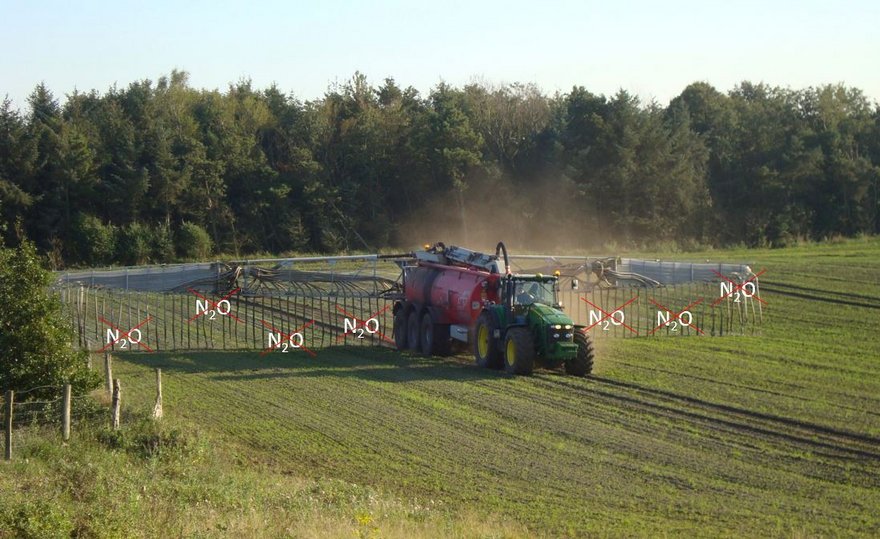
Nitrogen fertilization is important for plant production in Danish agriculture. Nitrogen is supplied to the fields with commercial fertilizer and livestock manure (primarily slurry), a large part of which is in the form of ammonium. Ammonium in the soil can be converted to nitrate through a microbial process called nitrification. If nitrate formation is greater than plant uptake or if it occurs for a period without plants in the field, it presents a risk of nitrate leaching. Inhibition of nitrification can therefore contribute to better nitrogen utilization, and for this purpose so-called nitrification inhibitors (NI) have been developed. It is a group of chemicals that all have the property of inhibiting the first step of nitrification, leaving the nitrogen in the plant-available ammonium form. Foreign studies have found that the emission of the potent greenhouse gas nitrous oxide (N2O) after fertilization with NI is significantly reduced. Nitrification inhibitors (NI) are used to reduce nitrogen loss after fertilization and increase nitrogen availability for the crop.
Foreign studies have found that the emission of the potent greenhouse gas (N2O) after fertilizer supply with NI is significantly reduced. Danish calculations estimate that NI can reduce N2O emissions by up to 709 kt CO2 eq / year. Before it is politically decided to promote the use of NI, it is necessary to document the potential for N2O reduction in Danish conditions, and to investigate potential risks to soil organisms and the fate of NI, incl. risk of leaching.
The aim of the project is to ensure an environmentally friendly use of NI to reduce N2O emissions from Danish agriculture